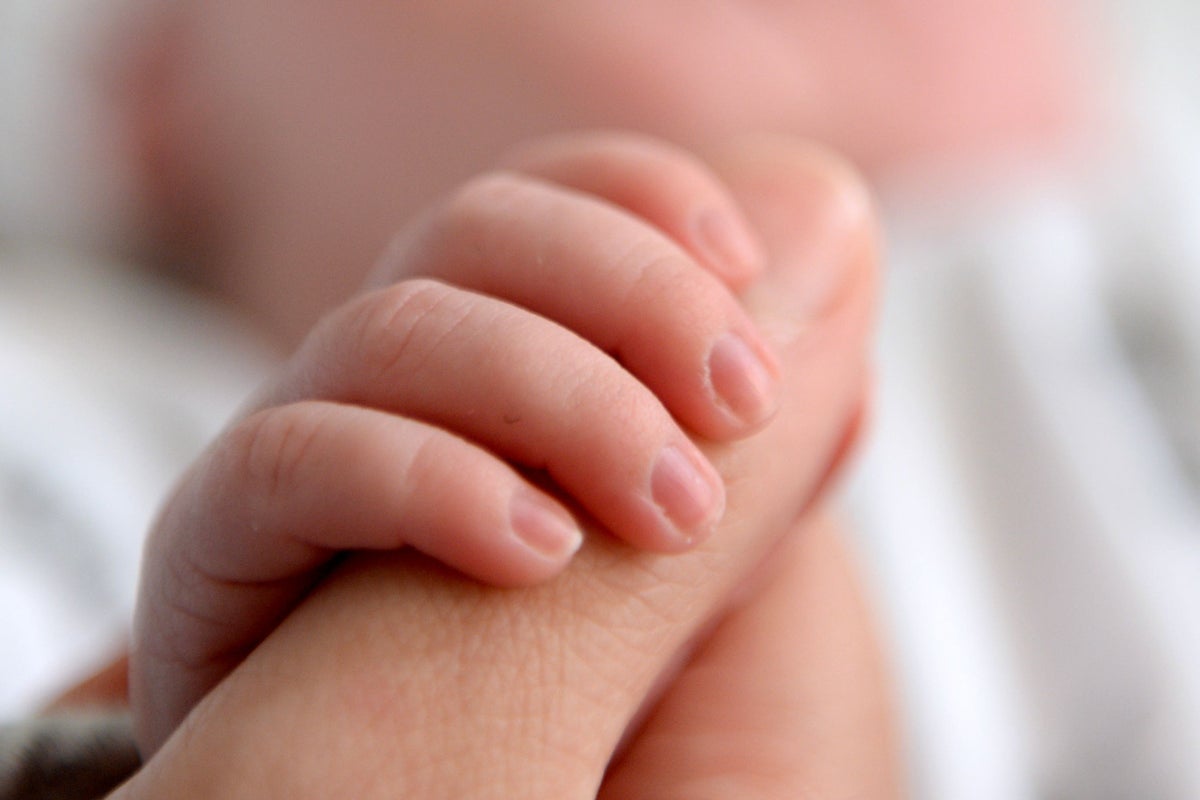
A parental leave review will look at “shifting social and gender norms”, taking into account paternal childcare, the employment rights minister has said.
Justin Madders criticised a “piecemeal approach” to designing the parental leave system over the past 134 years.
Unveiling the plan, Mr Madders set out four objectives for the probe.
Among these was “support for economic growth by enabling more parents to stay in work and advance their careers”, which could help the Government better tackle the gender pay gap.
Currently, new fathers can take two weeks’ paid leave, at a rate of either £187.18, or 90% of average weekly earnings, whichever is lowest.
Maternity leave is paid at 90% of average weekly earnings for the first six weeks, and then whichever is lower of that 90% or £187.18 for the next 33 weeks.
Ministers hope to increase the take-up of shared parental leave, which allows a couple to share up to 50 weeks of leave and 37 weeks of pay between them.
They also hope to simplify the system for both parents and employers, with Business Secretary Jonathan Reynolds warning that there are “eight different types of parental leave”.
Mr Madders told the Commons that “the current system has grown up gradually over time”.
He referred to the Factory and Workshop Act 1891, which banned women from working in factories for four weeks after they had given birth.
“Subsequent entitlements have been added to support specific groups as needs have emerged,” Mr Madders added.
“This has created a framework that does not always work cohesively as a whole. This piecemeal approach to parental leave and pay means that the system has never had an overarching set of objectives for what it should deliver.
“This review presents an opportunity to reset our approach and understanding of parental leave and pay, and what we want the system to achieve.”
The minister later said: “Our first objective is to support the physical and mental health of women during pregnancy and after giving birth to a child.
“Our second objective is to support economic growth by enabling more parents to stay in work and advance in their careers after starting a family. This will particularly focus on improving both women’s labour market outcomes and tackling the gender pay gap.
“Our third objective is to ensure that there are sufficient resources and time away from work to support new and expectant parents’ wellbeing. This will also include facilitating the best start in life for babies and young children, supporting health and development outcomes.
“Our fourth objective is to support parents to make balanced childcare choices that work for their family situation, including enabling co-parenting and providing flexibility to reflect the realities of modern work and childcare needs.”
The review, carried out by the Department for Business and Trade and the Department for Work and Pensions, will consider how to “balance costs and benefits to businesses and the Exchequer, as well as examining how a system can support economic opportunities for businesses and families”, Mr Madders said.
The review will also look at “improving our society, for example, in supporting the child poverty strategy and on shifting social and gender norms, including around paternal childcare”.
Mr Reynolds has previously told the PA news agency: “We want this to work for millions of families who tell us at the minute that it is not working, so only about one in three new dads take paternity leave, mainly for financial reasons.”
He insisted businesses would be “absolutely integral” to the review, and would not face extra burdens as a result.
He added: “They tell us the current system is quite confusing, that people don’t know what they’re entitled to, that businesses don’t know what they should be offering.”
Shadow business minister Greg Smith described a “toxic treatment of enterprise” by the Government and argued the British economy will be “stripped of all signs of life” by the time the review concludes.
“I would like to take this opportunity to make it crystal clear that Conservatives are not opposed to increased parental leave, so long as it is proportionate, affordable and does not increase unemployment,” he said.
“But therein lies the problem, because this Government has left themselves no breathing room. Their political choices have imposed the most significant headwinds on business in a generation.”
Mr Smith told MPs: “It’s all well and good that the minister announces this review in the House today, but, let us be in no doubt, when it concludes in a year and a half’s time, Britain’s economy will have been stripped of all signs of life because of the choices Labour have made.”
Responding, Mr Madders said the review was launched on Tuesday to meet Labour’s manifesto commitment to assess parental leave within a year of taking office.
Ban on ‘exploitative’ zero-hours contracts to come into effect in 2027
Welfare bill live: Minister won’t rule out tax rises as climbdown comes at ‘cost’
£160bn fear for London’s stock market as UK’s biggest firm considers US move
Labour MP who led welfare revolt calls for ‘wealth tax’ to meet £5bn cost of U-turn
Scotch eggs recalled by major food brand over salmonella fears
Man remanded in custody charged with murder of Sarah Montgomery







